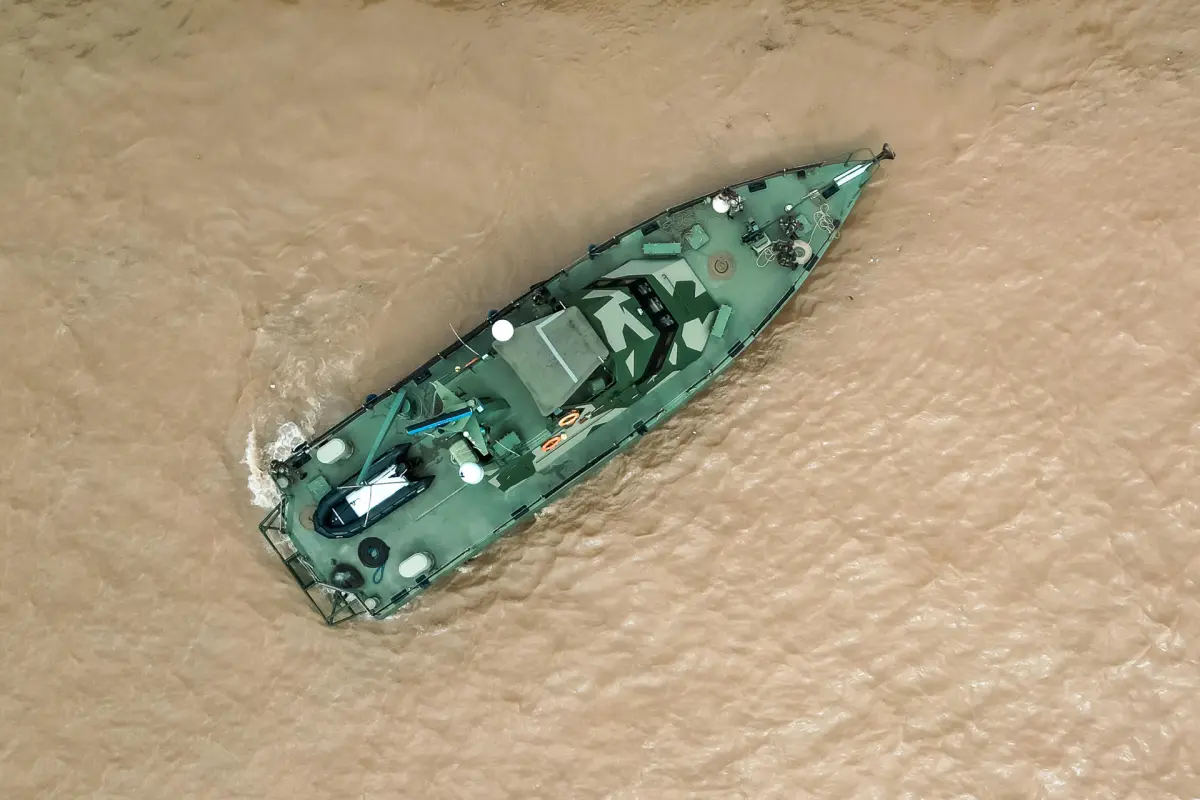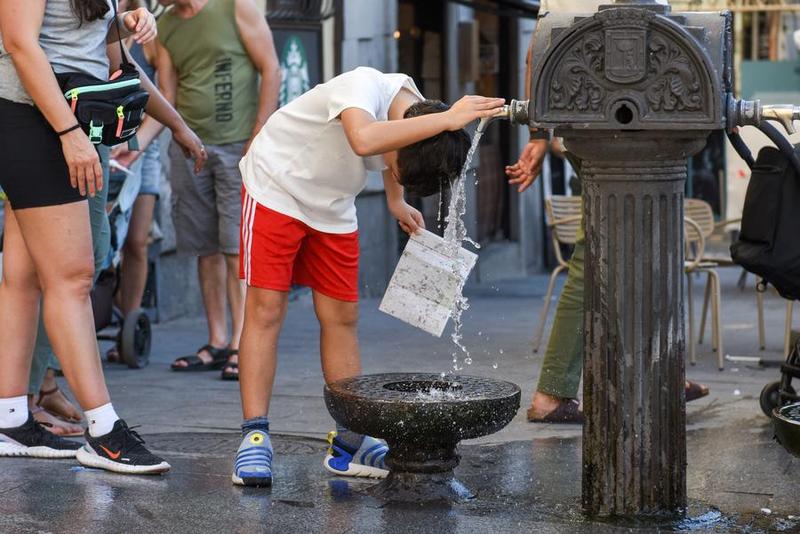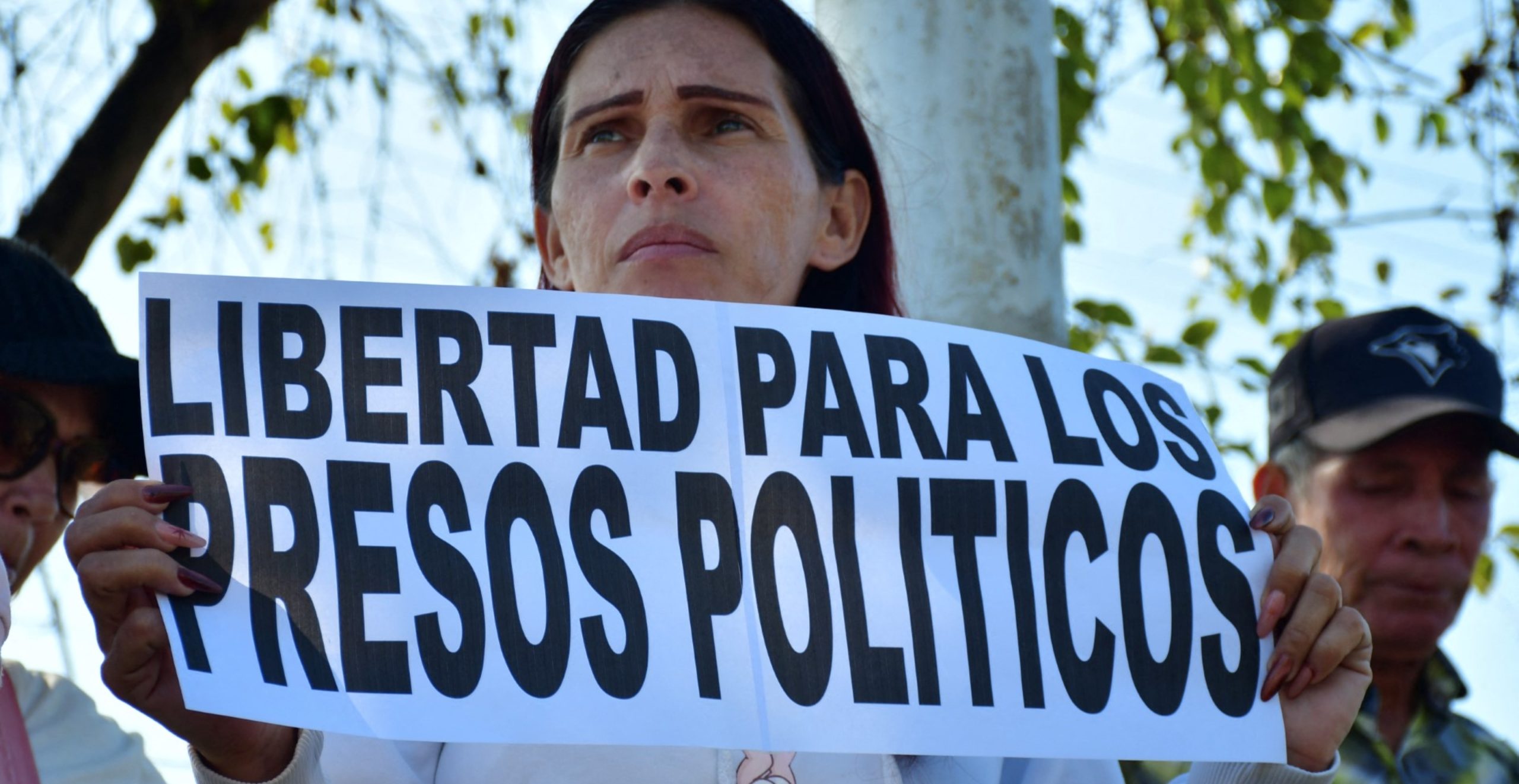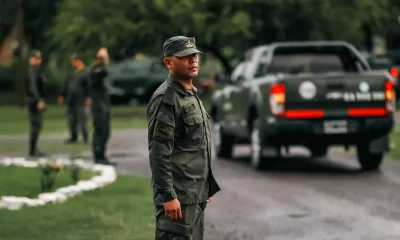International
By water or land, the security forces shield Rosario against drug trafficking

Whether by water or by land, the hardest core of the Argentine federal forces, which the Minister of Security, Patricia Bullrich, promised a few days ago, is in Rosario equipped with state-of-the-art technology and armored vehicles to reinforce the fight against drug trafficking.
Drug violence, which has been present in the third largest city in Argentina for decades, has intensified in recent weeks with the random murder of citizens in retaliation for the measures of the governor of Santa Fe, Maximiliano Pullaro, to implement the ‘Bukele style’ in the prisons of his province.
Faced with the situation of insecurity, the Executive intervened with the creation of a crisis committee, which sent hundreds of troops from the Prefecture, Federal Police, Gendarmerie, Airport Police and even members of the Army and the Naval Navy to Rosario, working together within a unified command.
It is estimated that they reach a total of 2,000 uniformed personnel. Although sources from the Ministry of Security inform EFE that they are estimated figures and can be even more: in short, “how much should not be revealed.”
As a port city on the banks of the Paraná River, Rosario has the protection of the Argentine Naval Prefecture (PNA), which since last December patrols the waterway day and night with different boats, among which the ‘Toba’ coast guard stands out.
One of the four fast attack boats of the Sheldag class, of Israeli origin, transferred to Argentina in 2018 to protect the water borders of the coast and north of the country, has two static machine guns of 7.62 caliber on the sides of the bridge and a heavy of 12.7 in the bow, with space for 12 prefects.
With 25 meters of length, 6 meters of sleeve and 1.25 meters of drage it can reach 75 kilometers of speed; in addition, it has a rubber Zodiac for coastal approaches or shipments to other ships.
The chief officer of the PNA Damián Centurión, captain of the ‘Toba’, explains to the EFE team embarked on the ship to accompany a patrol that the most frequent crime on the coasts is the smuggling of narcotics.
“Our job is to control and suppress illicit activities in water such as smuggling. Mainly, we take care of the control of the waterways. Our stay here is indefinite. We know that there is a lot to do in Rosario,” he says.
The ship has “endured punishment,” since in the middle of a confrontation it endured bullets of 9 and 22 millimeter caliber without being penetrated
According to the captain, the ship has already “endured punishment”: in the middle of a confrontation, the naval aluminum withstored, without being penetrated, bullets of the caliber 9 and 22 millimeters.
They arrived in Rosario with the ‘Flag Plan’, installed shortly after Javier Milei assumed president, to strengthen security and, according to official data, the reduction in intentional homicides dropped to 47.83%.
In the first two months of 2024, the drug trafficker has carried out 24 murders, while the operatives managed to dismantle organized crime activities, in addition to seizing vehicles, weapons and mobile phones.
“At the moment, there was no worrying fact among our current patrol tasks that go from Rosario, Santa Fe, Arroyo Seco, San Lorenzo and wherever they require us. We are varying the schedules, but we are usually at night,” he adds.
For that work, the ‘Toba’ has thermal, night and daytime cameras with a range of 7 kilometers used to follow boats from a distance and automatically, thanks to its radar system.
The arrival of federal forces included their tactical groups, prepared to deal with anti-terrorist and drug trafficking situations: the special group of federal operations (GEOF) arrived on the streets of Rosario, which uses the ‘Mengshi’ (Chinese word for ‘brave soldier’) type CSK131.
It is a light armored vehicle of the four donated by China to Argentina and put into operation in 2018 for the G20 Summit, it has space for six men and is used to accompany police searches.
This Asian version of the famous HMMWV (‘Humvee’) accompanies checkpoints and checkpoints in the so-called ‘saturation operations’ – as EFE could verify -, which work in an intimidating way by controlling vehicles and in the surveillance of the most dangerous neighborhoods.
These operations begin at 5:00 p.m. (20:00 GMT) until 7:00 a.m. (10:00 GMT) the following day with the intention of preventing and mapping the criminal structure.
The ‘Mengshi’ can reach 135 kilometers per hour, withstand all kinds of calibers of firearms and explosive splinters of low and medium power; it can even be equipped with a heavy machine gun and even grenade launcher.
Although “narcoterrorism,” as the authorities call it, has long tentacles, the arrival of agents and heavy equipment for now shields Rosario against drug trafficking.
International
Spain’s irregular migrant population rises to 840,000, study finds

The number of migrants living in Spain without legal residency status continues to rise and has reached 840,000 people, with 91% originating from the Americas, particularly Colombia, Peru and Honduras, according to a report by the Spanish think tank Funcas (Foundation of the Savings Banks).
An estimated 17.2% of the non-EU foreign population living in Spain is in an irregular administrative situation. The estimate is based on the gap between the number of foreign residents effectively living in Spain, according to the National Statistics Institute (INE), and those who hold a residence permit, benefit from international protection, or are in the process of obtaining it.
The data, as of January 1, 2025, point to a notable and sustained increase in irregular migration since 2017, when the estimated figure stood at around 107,000 people, representing 4.2% of the non-EU population residing in Spain.
By origin, migrants from the American continent stand out, totaling around 760,000 people, or 91% of all irregular migrants. Colombians account for nearly 290,000, followed by Peruvians with almost 110,000, and Hondurans with about 90,000. Migrants from Africa (50,000), Asia (15,000) and Europe (14,000) trail far behind.
The figures predate Spain’s latest immigration regulation reform, which came into force in May 2025 and introduces measures to ease access to legal status through residency ties. According to Funcas, the reform would, in principle, tend to reduce the number of migrants in an irregular situation.
International
Historic snowstorm paralyzes Toronto after 60 centimeters of snow

Toronto, Canada’s largest city and the fourth most populous in North America, was largely paralyzed on Monday after a historic snowstorm dumped up to 60 centimeters of snow and sent temperatures plunging to -15 degrees Celsius, authorities said.
Late Sunday, as the scale of the snowfall became clear, city officials declared a climate emergency, triggering extraordinary measures including parking bans on several major streets to facilitate snow removal operations.
Toronto’s public transit authority reported that while some buses remain immobilized, subway and streetcar services are operating with relative normality, though localized disruptions may occur.
A similar situation is affecting the city’s commuter rail network, which remains operational but is experiencing significant delays on its main routes due to the severe weather conditions.
International
Venezuela frees at least 80 political prisoners, NGO says

At least 80 political prisoners were released on Sunday across Venezuela, human rights group Foro Penal reported, as the broader process of detainee releases continues at a slow pace under the interim government.
Foro Penal’s director, Alfredo Romero, wrote on social media platform X that verified releases took place nationwide and that the figure could rise as more confirmations are completed.
Attorney Gonzalo Himiob, also from Foro Penal, said the excarcelations occurred during the early hours of the day and emphasized that the number is not yet final pending further verification.
The releases are part of a series of steps announced by Venezuela’s interim leader, Delcy Rodríguez, who took power after the capture of former President Nicolás Maduro in a U.S. military operation on Jan. 3, 2026. Rodríguez has pledged a significant number of liberations but has been criticized by opposition groups and rights organizations for the slow and nontransparent nature of the process.
So far, the Venezuelan government reports that 626 detainees have been freed since December, though independent counts by human rights groups suggest the number of actual political prisoner releases is lower and that many remain behind bars.
Families of those still detained have maintained vigils outside prisons, hopeful for further releases even as broader concerns about political imprisonment and due process persist.
-

 Central America4 days ago
Central America4 days agoGuatemala’s president rules out negotiations with inmates after prison riots
-

 Internacionales4 days ago
Internacionales4 days agoMajor winter storm threatens “catastrophic” ice and snow across much of the U.S.
-

 International3 days ago
International3 days agoTrump-Era Defense Plan Prioritizes Border Security and Scales Back Global Commitments
-

 Central America22 hours ago
Central America22 hours agoGuatemala seizes over a ton of cocaine hidden in flour at Pacific port
-

 International3 days ago
International3 days agoBogotá and Quito Seek Dialogue After Tariffs and Power Cut Escalate Tensions
-

 International4 days ago
International4 days agoGuatemala considers sending high-risk gang members to military prisons
-

 International2 days ago
International2 days agoDelcy Rodríguez seeks political agreements after Maduro’s ouster
-

 International2 days ago
International2 days agoFederal immigration agents kill man in Minneapolis, sparking protests and outrage
-

 International4 days ago
International4 days agoRights group says over 5,000 killed in Iran protests, mostly civilians
-

 International22 hours ago
International22 hours agoHistoric snowstorm paralyzes Toronto after 60 centimeters of snow
-

 International22 hours ago
International22 hours agoSpain’s irregular migrant population rises to 840,000, study finds
-

 International22 hours ago
International22 hours agoRights group says nearly 6,000 killed in Iran protest crackdown
-

 International22 hours ago
International22 hours agoVenezuela frees at least 80 political prisoners, NGO says
-

 International22 hours ago
International22 hours agoEU launches new probe into X over AI-generated fake nude images
-

 International23 hours ago
International23 hours agoFrance debates ban on social media for children under 15
-

 International23 hours ago
International23 hours agoSevere winter storm grips U.S., leaves multiple dead as extreme cold persists




























